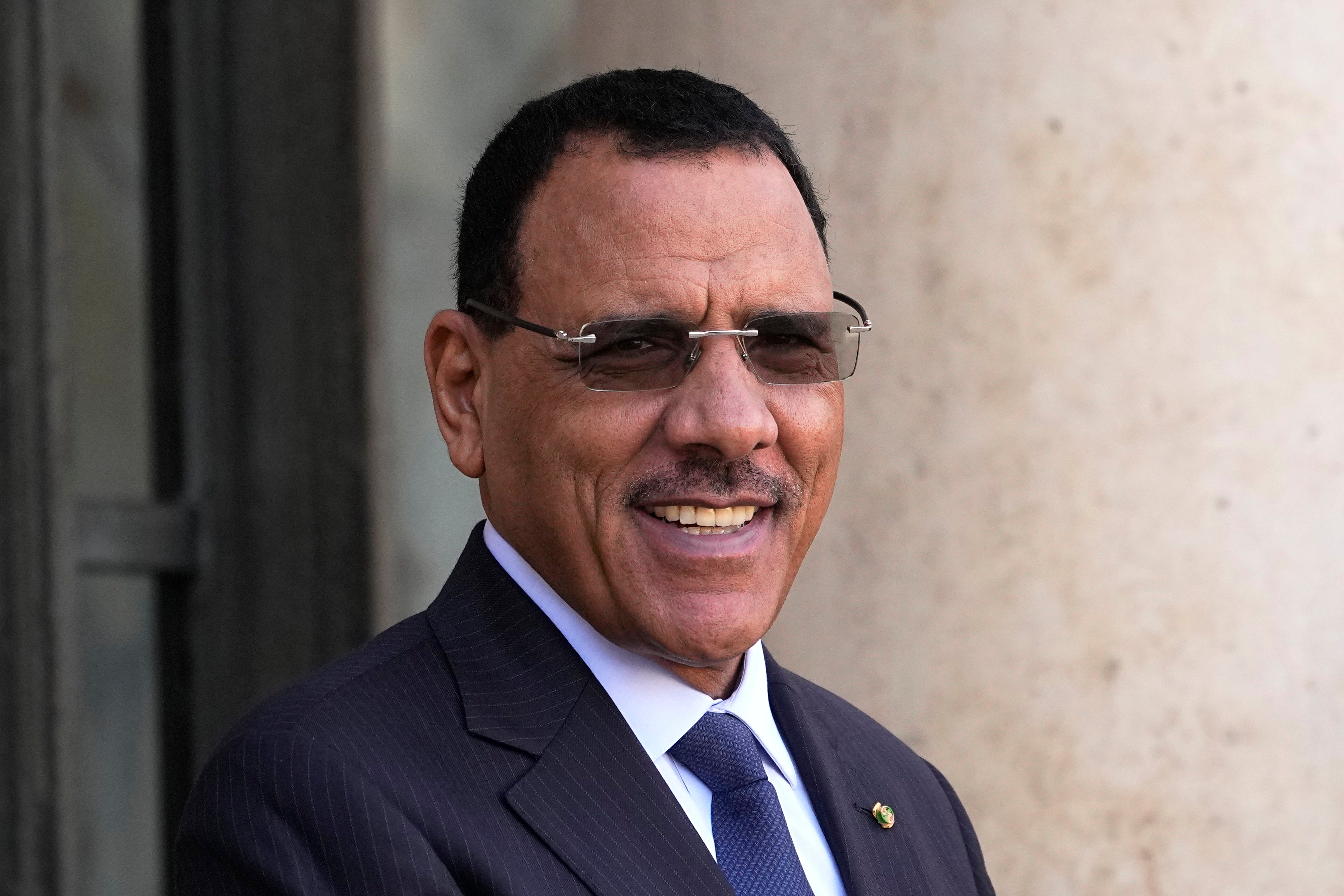Niger's highest court lifts immunity of deposed President Mohamed Bazoum
The highest court in Niger lifted the immunity of the country's democratically elected president Mohamed Bazoum

Niger’s highest court lifted the immunity of the country’s democratically elected president, Mohamed Bazoum, nearly a year after he was overthrown by mutinous soldiers, his lawyer said Friday, opening the door for the military junta to prosecute him for alleged high treason.
Bazoum’s lawyer, Reed Brody, made the announcement on Friday.
Bazoum and his family have been under house arrest since a military coup that overthrew his rule last summer. The junta authorities said they planned to prosecute him for “high treason” and for undermining national security, and earlier this year initiated legal proceedings to lift his immunity in a newly created State Court, which became the country's highest judicial authority.
Before Bazoum was forcibly removed from power, Niger was the West’s last major security partner in the Sahel, the vast region south of the Sahara Desert that Islamic extremist groups have turned into a global terror hot spot.
The proceedings before the State Court have been marred by serious irregularities, including violations of Bazoum’s rights to present evidence in his defense, to communicate with his legal counsel, and to be heard before an independent court, according to Human Rights Watch, a leading rights group.
Bazoum’s lawyers have been unable to communicate with him since last October and have had restricted access to case material, according to HRW.
Late last year, the highest court of the West African regional bloc, ECOWAS, ruled that Bazoum and his family were arbitrarily detained and called for him to be restored to office.
Bookmark popover
Removed from bookmarks